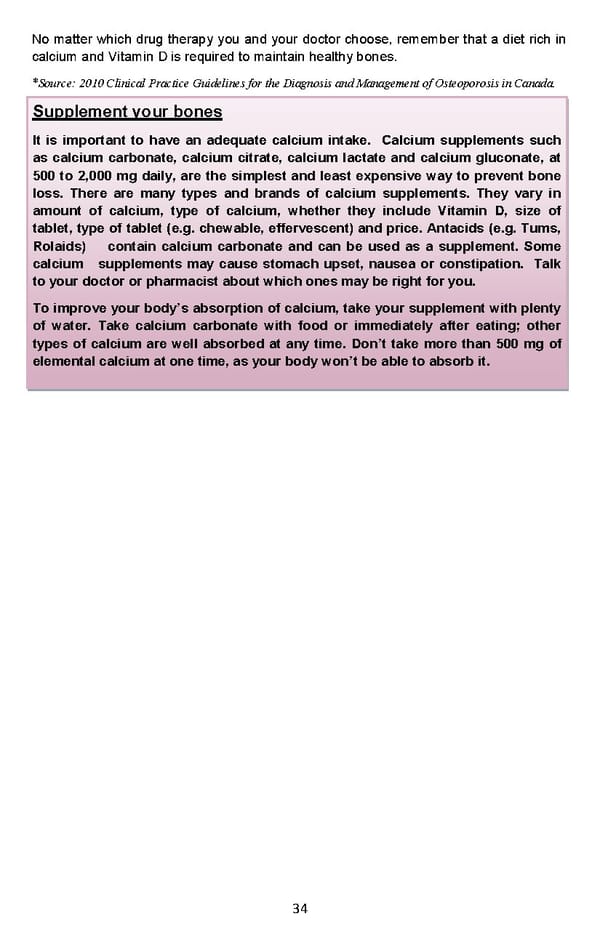No matter which drug therapy you and your doctor choose, remember that a diet rich in calcium and Vitamin D is required to maintain healthy bones. *Source: 2010 Clinical Practice Guidelines for the Diagnosis and Management of Osteoporosis in Canada. Supplement your bones It is important to have an adequate calcium intake. Calcium supplements such as calcium carbonate, calcium citrate, calcium lactate and calcium gluconate, at 500 to 2,000 mg daily, are the simplest and least expensive way to prevent bone loss. There are many types and brands of calcium supplements. They vary in amount of calcium, type of calcium, whether they include Vitamin D, size of tablet, type of tablet (e.g. chewable, effervescent) and price. Antacids (e.g. Tums, Rolaids) contain calcium carbonate and can be used as a supplement. Some calcium supplements may cause stomach upset, nausea or constipation. Talk to your doctor or pharmacist about which ones may be right for you. To improve your body’s absorption of calcium, take your supplement with plenty of water. Take calcium carbonate with food or immediately after eating; other types of calcium are well absorbed at any time. Don’t take more than 500 mg of elemental calcium at one time, as your body won’t be able to absorb it. 34
 Living Well With Lupus Facts Booklet Page 33 Page 35
Living Well With Lupus Facts Booklet Page 33 Page 35